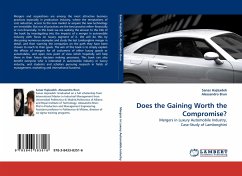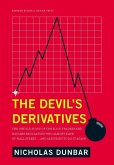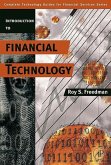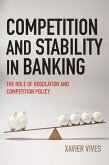The 2008 financial crisis cost $15 trillion in the U.S. stock and residential housing markets. The crash hit institutions and citizens, threatening economic survival, employment, and retirement prospects.
What went wrong? And how can we prevent a similar disaster? In Worth the Risk, Robert Merton--the Nobel Prize-winning economist whose work revolutionized financial markets--offers answers.
Merton maintains that the magnitude of the crisis points to more fundamental forces at work than the greed, selfishness, or criminal behavior of some financial-system players and consumers. In clear, accessible language, he demystifies those forces. For example, he shows:
-Why the professionals underestimated the riskiness of mortgage-backed securities and corporate loan portfolios.
-How the financial innovations that brought home ownership to millions of Americans combined with other benign developments to inject huge, systemic risk into the U.S. economy.
Merton then identifies specific reforms that could improve regulation and transparency in the financial-services industry and head off a similar crash in the future. In particular, he offers strategies for minimizing risks in the innovation of financial instruments--which remains essential for our economy's health. And he suggests innovations that could open the door to security and growth for nations, corporations, and individuals.
Engaging and authoritative, Worth the Risk provides answers to the burning questions on everyone's mind?and paints an encouraging picture of a far more solid financial future.
Hinweis: Dieser Artikel kann nur an eine deutsche Lieferadresse ausgeliefert werden.
What went wrong? And how can we prevent a similar disaster? In Worth the Risk, Robert Merton--the Nobel Prize-winning economist whose work revolutionized financial markets--offers answers.
Merton maintains that the magnitude of the crisis points to more fundamental forces at work than the greed, selfishness, or criminal behavior of some financial-system players and consumers. In clear, accessible language, he demystifies those forces. For example, he shows:
-Why the professionals underestimated the riskiness of mortgage-backed securities and corporate loan portfolios.
-How the financial innovations that brought home ownership to millions of Americans combined with other benign developments to inject huge, systemic risk into the U.S. economy.
Merton then identifies specific reforms that could improve regulation and transparency in the financial-services industry and head off a similar crash in the future. In particular, he offers strategies for minimizing risks in the innovation of financial instruments--which remains essential for our economy's health. And he suggests innovations that could open the door to security and growth for nations, corporations, and individuals.
Engaging and authoritative, Worth the Risk provides answers to the burning questions on everyone's mind?and paints an encouraging picture of a far more solid financial future.
Hinweis: Dieser Artikel kann nur an eine deutsche Lieferadresse ausgeliefert werden.








